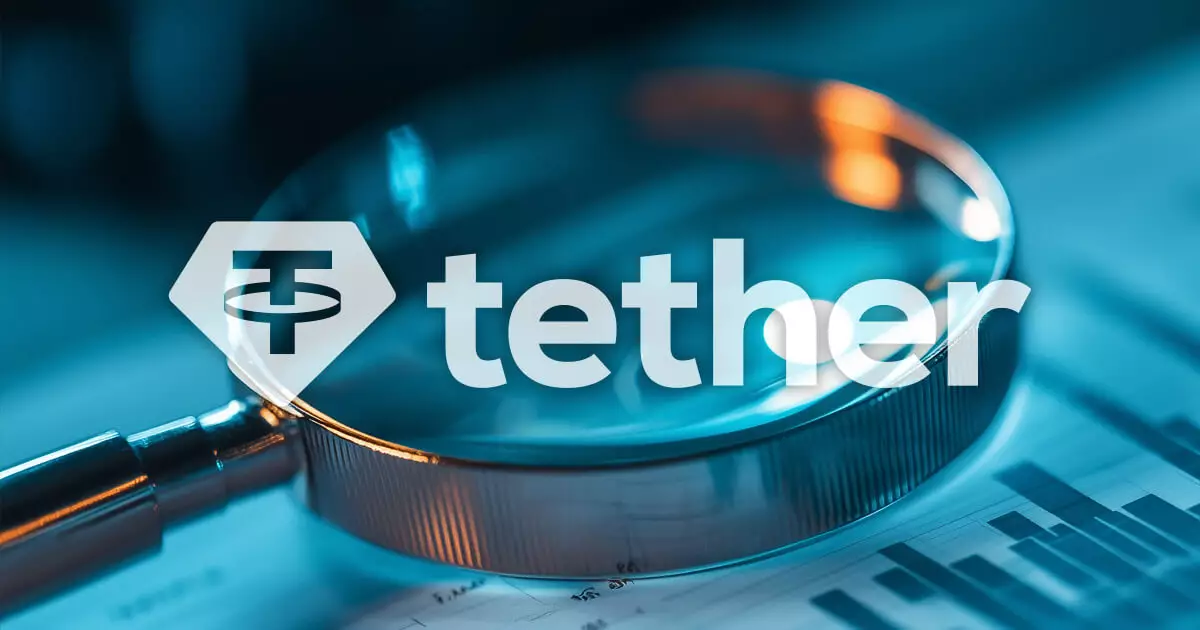In a bold proclamation, Tether—the issuer of the USDT stablecoin—has appointed Simon McWilliams as its new Chief Financial Officer, ostensibly to bolster transparency through a full audit. While this move appears promising, the reality is a tangled web of skepticism and cautious optimism. Will McWilliams ultimately provide the assurance that investors seek? Or is this merely a façade to quiet persistent concerns regarding Tether’s reserve holdings?
Tether has long faced scrutiny for its lack of comprehensive audits, opting instead for quarterly attestations from the accounting firm BDO. Critics argue that these attestations are superficial at best. An independent audit carries significant weight in establishing fiscal credibility and, without it, the doubts surrounding Tether continue to loom large.
Skepticism is further fueled by Tether’s history of evading rigorous audits. Historical patterns suggest that Tether has operated more like a black box than a transparent financial entity. Jane Adams, a 2024 US House of Representatives candidate, has been vocal in her criticism, pointing out that simply hiring a new CFO does not address the core issues of financial opacity. The notion that a “force of nature” CFO can resolve long-standing reservations about reserves feels like a desperate attempt to sidestep legitimate questions.
Furthermore, Tether’s assertion that regulatory obstacles limit its options with top accounting firms raises an eyebrow. Is it merely a convenient excuse? If the stakes are indeed as high as Tether claims, one would think they would pursue every avenue for validation, instead of allowing worrisome speculation to thrive.
Another significant aspect of this transition is the shift in leadership dynamics, as Giancarlo Devasini, the former CFO, takes on the role of Chairman of the Group. This move could either enhance Tether’s macroeconomic strategy—or lock the company into a stagnating mindset. Devasini’s focus on the global adoption of digital assets is commendable, but can he genuinely focus on issues that matter most to consumers, like trust and accountability?
Having these dual roles could be problematic; while pressing forward with global ambitions, can Tether afford to overlook the foundational requirement of transparency? Relying on the same leadership structure that has drawn skepticism could prove to be more of a hindrance than a help.
Tether maintains its assertion that every USDT token is fully backed, yet the lack of an independent and comprehensive audit leaves room for speculation. With the looming possibility of a full audit, investors must grapple with the question: will principles of transparency truly be upheld, or are we witnessing an elaborate marketing scheme designed to regain public trust?
As Tether moves forward, stakeholders should remain cautious—not just passively accepting assurances but demanding hard evidence. McWilliams may have the credentials, and Ardoino may confidently propagate a narrative of progress, but until a thorough audit is performed, skepticism remains a valid stance.
The reality is that the crypto landscape is rife with pitfalls and uncertainties, and rushing into unproven ventures can nudge the entire financial ecosystem toward further instability. Trust is not easily regained, particularly when one has consistently dodged the spotlight of scrutiny.















